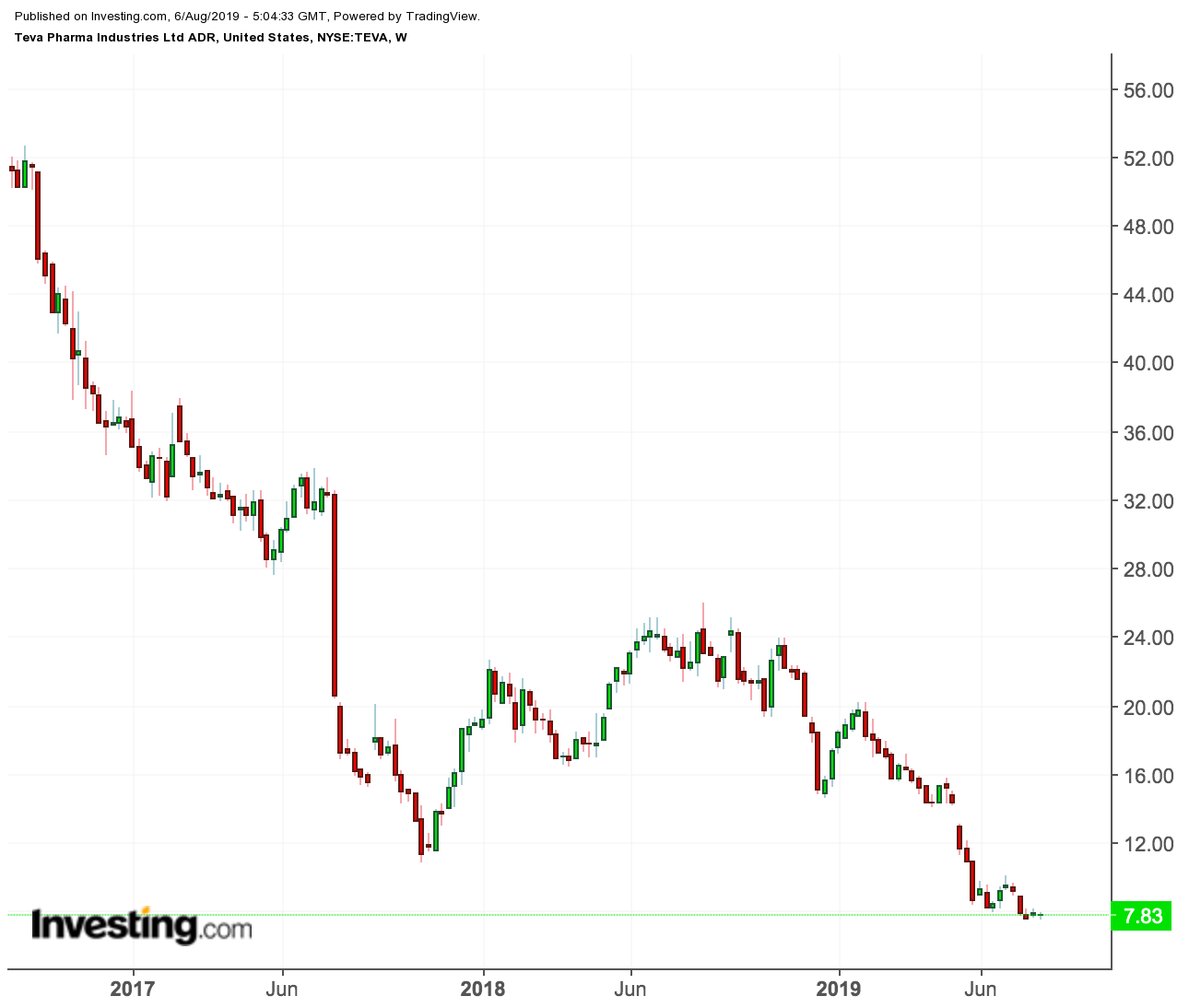- Reports Q2 2019 results on Wednesday, Aug. 7, before the open
- Revenue expectation: $4.25 billion
- EPS expectation: $0.57
The drastic plunge in Teva Pharma (NYSE:TEVA) shares this year shows that the worst is far from over for the world’s largest generic drug-maker. And there's little chance its second-quarter earnings tomorrow will help build the case for a quick revival.
Since the company announced its Q1 earnings in May, investors’ focus has shifted from CEO Kare Schultz’s turnaround efforts to a new antitrust litigation by U.S. states that puts Teva at the center of an alleged price-fixing conspiracy.
The lawsuit, filed by more than 40 states in early May, accuses Teva of colluding with a core group of competitors to follow each other’s price increases. During a 19-month period from 2013 to 2015, Teva significantly raised prices on about 112 generic drugs and colluded with its competitors on at least 86 medicines, the states said.
According to Morgan Stanley, Teva is one of the large drug-makers which face heightened "litigation risks" related to its involvement in the U.S. opioid crisis and state governments' actions against drug makers and distributors.

The risks of regulatory action and the possibility of a large fine mean Teva shares could remain depressed even if the turnaround efforts of Schultz begin to show results. After losing half of their value in the past three months, Teva shares were trading at $7.84 on Monday, having sunk 0.3% through the session.
Deep Slump
Teva is trying to recover from a deep slump, started in the summer of 2015, that sent its shares tumbling as the company invested heavily to grow its copycat medicines business. That happened at a time when margins began to shrink in the U.S. amid fierce competition from other pharma producers.
The biggest setback came when Teva lost its monopoly on Copaxone, a blockbuster multiple sclerosis injection that at one point generated half of Teva’s profits. That setback pushed Teva into a debt-trap, raising doubts about its ability to repay its massive loans.
Analysts’ consensus forecast for profit and sales for the Q2 shows that deceleration in revenue hasn’t reached its bottom. During tomorrow's release, Teva is likely to report its profit fell to $0.57 a share from $0.78 a share from the year ago period, while sales to shrank 10% to $4.25 billion, according to analysts’ average estimate.
Despite the outlook clouded by the litigation, there are signs that Schultz is on track to hit some of his restructuring targets. Teva has cut $2.5 billion of costs since Schultz took over, closing in on the target he set for the company for the end of the year. And at the same time the market for knockoff medicines is stabilizing after years of declines in profit margins.
Teva’s robust pipeline of new drugs is another bright spot. The recent approval of its next-generation migraine medication, Ajovy, has so far not created much excitement, but this drug has a great future and could bring in a significant new revenue stream in the next two to three years.
Teva's Huntington's disease medicine, Austedo, could also prove another big revenue generator, which would help the drugmaker arrest the slide in its sales. Austedo's peak sales are forecast to reach as high as $1.3 billion within the next three years.
Bottom Line
Teva is still very much a risky turnaround bet for those who have the patience to hold its stock through this highly challenging operating environment and its future outlook has become murkier after the new antitrust lawsuit. Any sign of improvement in the company’s top-line growth and the success of cost-cutting efforts could produce a relief rally now that the shares have taken such a massive beating.
